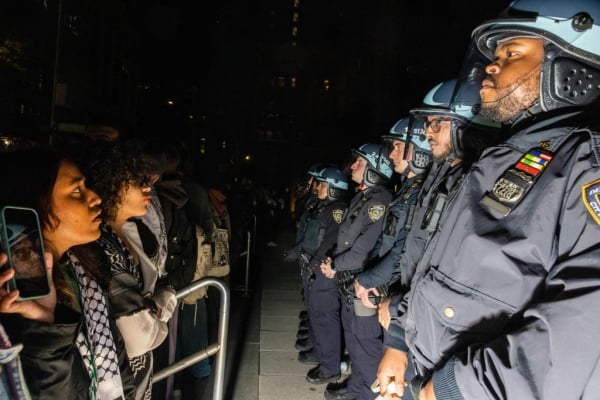Police repression has long been a controversial topic, with some arguing that it is necessary for maintaining law and order, while others argue that it only exacerbates social problems. In recent years, with the rise of movements like Black Lives Matter and calls to defund the police, the discussion around police repression has become even more heated.
It is important to understand that police repression is not the solution to social problems, but rather it is often the root cause of those problems. When police use force, intimidation, and violence to control and suppress certain groups of people, they only serve to deepen existing inequalities and create more mistrust between the community and law enforcement.
One of the biggest issues with police repression is that it disproportionately affects marginalized communities, particularly people of color and low-income individuals. Black and brown people are more likely to be targeted by police, leading to higher rates of arrests, incarceration, and violence. This not only perpetuates a cycle of poverty and crime but also undermines the trust between communities and police officers.
Furthermore, police repression often escalates situations that could have been resolved peacefully. Instead of de-escalating conflicts and promoting dialogue, police officers are trained to use force as a first resort, leading to unnecessary injuries and even deaths. This has been painfully evident in cases of police brutality, where unarmed individuals have been killed by officers with little to no accountability.
In order to address the root causes of social problems, we must shift our focus away from police repression and towards community-based solutions. Investing in education, mental health services, affordable housing, and other social programs can help prevent crime and address the underlying issues that lead to it. Additionally, we must work towards demilitarizing the police and holding officers accountable for their actions.
Ultimately, police repression only serves to perpetuate a cycle of violence and injustice. It is time to rethink our approach to public safety and prioritize solutions that promote equity, justice, and healing in our communities. By addressing the root causes of social problems and investing in holistic solutions, we can build safer and more just communities for all.



